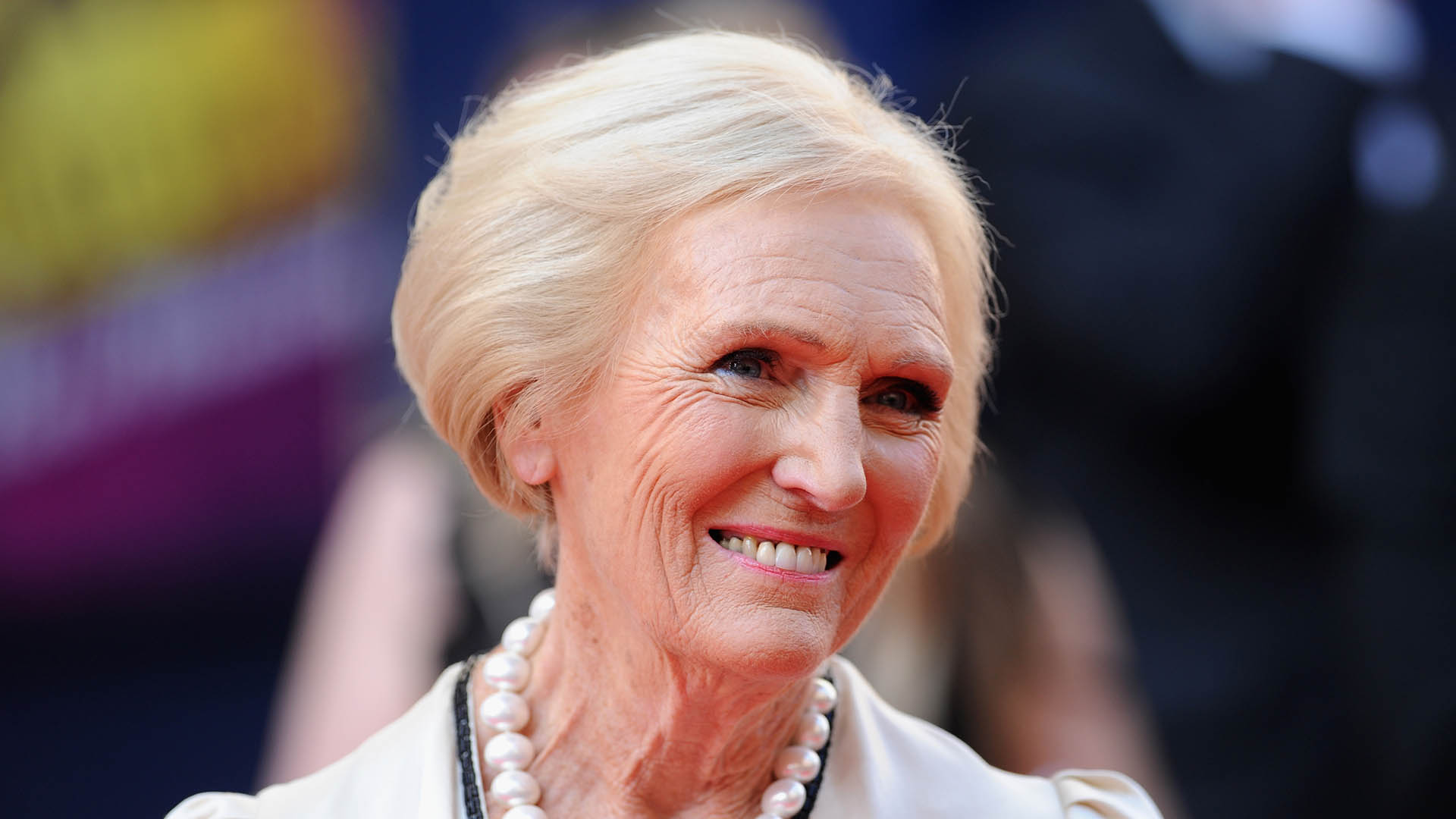Mary Berry's Lawyers Not Amused By Mary Berry Beer
Mary Berry may be one of the sweetest people on television, but she's not afraid to stand up for herself, either. Or, specifically, her lawyers are not afraid to stand up to protect Mary Berry's valuable likeness and name and licensing potential.
This has all come to light as the agency representing Mary Berry has issued a cease and desist letter to a California brewery that was set to release a beer called—drumroll please—Mary Berry. The original label, photos of which have since been covered up, also reportedly featured her face. The brewery, Armistice Brewing of Richmond, California, has since posted on Instagram that it will rebrand the beer, which is described as a pastry stout brewed with berries. Mary Berry does have a U.S. trademark for her name as it pertains to kitchen products like aprons, scales, and bakeware, according to Brendan Palfreyman, an intellectual property and craft beer attorney with Harris Beach.
"It was totally intended as an homage, but I get it, people gotta protect their image to the public," Armistice cofounder Alex Zobel told SFGate. That sounds fairly conciliatory, but the brewery's Instagram post is more pointed, stating in part: "Somebody's agency has a very soggy bottom, indeed." The brewery told SFGate it plans to rebrand the beer as Cease And Desist Berry (reminiscent of Lagunitas' Undercover Shutdown Ale, if you ask me).
The Mary Berry/Armistie kerfuffle is but a microcosm of the larger intellectual property issues that regularly crop up in the world of craft beer branding. A recent lawsuit Guns N' Roses won against Longmont, Colorado-based brewery Oskar Blues was just the highest profile example, but breweries often push the envelope with borrowed imagery, punny names, and "homages" to musicians, TV shows, and movies.
"I'm sure California has a law requiring permission from the person in terms of using their likeness," Palfreyman tells The Takeout. "There are uses of someone's trademark that are protected as fair use, such as parodying the use of someone's mark. ... Or when you see grocery-store-brand Cheerios that say 'compare to Cheerios,' they're using a trademark but using it to describe another product. Here, [this beer] is obviously a for-profit use so it wouldn't qualify as fair use."
Palfreyman also notes that in certain cases when cease and desist letters are sent to breweries over intellectual property and trademark infringement, the breweries are permitted to sell through the current batch of beer. The brewery can then market them as a special release with no plans to rebrew that beer. In the Mary Berry case, her agency did not allow the beer to be sold, period, which creates actual cost to the brewery in terms of rebranding and relabeling the beer.
"When the owner of the copyright or trademark insists you not sell what you have on hand, that's a real, hard cost that the brewery owner should be thinking of before putting this out," he says.
